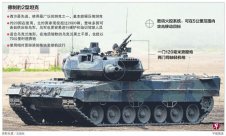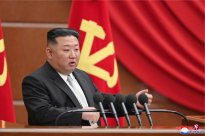Asmore CEO Wen Peter pointed out that Chinese semiconductor companies must compete with global opponents, so they want to buy non -Chinese manufacturing equipment."If they can't buy these devices, they will develop themselves. This takes time, but they will eventually do it."
(Feld Hoffen Composite Electric) Dutch Optical Journal Giants Asmi believes that the United States' export control measures against China may eventually promote Beijing to successfully develop advanced local chips (also known as chips) manufacturing technology.
ASML Holdings CEO Peter Wennink (January 25) at the company's headquarters at Veldhoven, a Chinese semiconductor company must be with Bloomberg.Global rivals are competing, so they want to buy non -Chinese -made equipment."If they can't buy these devices, they will develop themselves. This takes time, but they will eventually do it."
Peter also said that the greater the pressure in China, the more likely it is to double to create a light carved machine comparable to Asmore products.
With the intensification of competition between the two major economies of China and the United States, the semiconductor field has become a key battlefield.In October last year, the United States implemented extensive restrictions on export chips related products to China, including prohibiting export of advanced chips, technology and equipment, and prohibiting American citizens from participating in the development of the Chinese chip industry.
Win Peter said that the restrictions on US personnel to bring various problems to enterprises and individuals, which is "definitely not a good thing."
In order to weaken China's capabilities to establish a self -sufficient chip industry supply chain, the United States is still attracting the two major semiconductor manufacturing equipment of Japan and the Netherlands to jointly restrict exports to China.This means that Asto's sales of Chinese customers may face more restrictions.
In 2019, as Mc, under the pressure of the United States, it was restricted to sell the most advanced extremely UV -carved equipment (EUV) to Chinese customers.Last year, Acemi sales reached 2.16 billion euros to China, accounting for 14%of the company's total revenue.
Hemei officials will be discussed to discuss the export control of China semiconductor
Peter Winter pointed out that in general, export control will cause some damage, affecting industry efficiency and innovation, "this will affect all of us."
Reuters quoted the insiders, saying that the Netherlands and US officials met in Washington on Friday (January 27) to discuss restrictions on export semiconductor manufacturing equipment.If the two parties agree on the details, the agreement may be announced as soon as the day.However, any agreement reached by both parties may not be announced immediately.
Bloomberg also quoted news that the Netherlands and Japan are expected to reach an agreement with the United States soon, but the measures taken by the two countries will not be as radical as the United States.
A source told Reuters that a major concern of the negotiator is that even if the supply chain has only changed slightly, it may cause the global chip shortage problem.In the past two years, the shortage of chips has seriously interfered with the global supply chain. This situation has been relieved in recent months.
It is reported that Dutch officials also insist that relevant control measures must be formulated in accordance with the national security issues of the Netherlands, and at the same time, it is necessary to avoid the impression that the American chip manufacturing industry is favored by the United States.
The Dutch Ministry of Foreign Affairs refused to comment on Reuters.U.S. officials did not immediately respond to the request for comment.
Win Peter said that Acemi did not participate in negotiations with US officials. Although the USH may soon announce an agreement, it is unclear whether the problem of technical details has been resolved.



